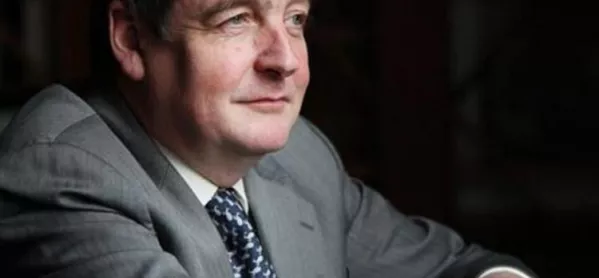- Home
- Is this the moment to throw off our political chains?
Is this the moment to throw off our political chains?

Buzz word of the week? “Unprecedented.”
Overused as it is, it remains le mot juste. Nothing in my experience compares with what school leaders (and teachers) are coping with in the coronavirus crisis: so I won’t even begin to offer clever advice.
Instead, I’ll look to the future. A situation so challenging and entirely novel, in which people and institutions - whole nations, indeed - have to devise whole new ways of operating, cannot help but change attitudes and assumptions. Above all, priorities may be radically altered, and things hitherto taken for granted valued in entirely different ways.
In education, the first assumption rocked to its foundation was the very purpose of schooling, which took on a different aspect as soon as schools became, well, unavailable to most families.
When I used to challenge my own pupils about why they went to school, and/or my school in particular, they’d invariably answer, with depressing utilitarianism, that it would get them good qualifications and jobs. Parents might add a hope for happiness along the way, while a (very) few sought the development in their child of a particular cultural or sporting strength.
Shifting priorities
How differently things appeared as soon as every school in the country closed! Government insisted that they must stay open not only for the children of key workers but also for vulnerable children. Additionally there was consideration of provision, of food at any rate, for children from poor homes.
At a stroke the priorities of schooling shifted. Remove the obvious stuff about learning subjects and skills and preparing for exams, and what’s left? Care, both physical and pastoral: providing a safe space, protecting and supportive, for those who cannot manage robustly on their own, or even in their homes and families (if they have them).
In a radio interview, LBC’s Eddie Mair tried to get ASCL general secretary Geoff Barton to admit that there wouldn’t be “proper” teaching (my quotes), and that schools would effectively be “child-minding” (his word). Geoff wouldn’t accept the label: but the thought was out there. Yet simultaneously came the tacit acceptance that schools do, indeed, mind children, protect, safeguard and even feed them, as well as teach them stuff.
No exams...so what’s left?
With exams suspended, no clear idea yet as to how A levels and entry to university will be managed (the two are inextricably linked) and GCSEs disappearing into a black hole, what’s left for this year’s 16- and 18-year-olds to consider the achievements of their school careers? Heads and their leaders are, rightly, quick to point to all that they’ve achieved, experienced and learned through the course of their schooling.
Of course, they’d be right: there’s much more to education than mere qualifications. There’s the whole range of subjects and experiences to be undergone - Ofsted’s rich and varied curriculum, indeed - and all those sporting and cultural opportunities, outdoor education, service and volunteering, every one of them a chance for personal growth and for learning to work, and enjoy engagement, with others. But now this crisis has revealed care as the headline activity.
Don’t try that one, pupils might well respond. Throughout their schooling they’ve been fed the line that those GCSEs and A levels are all that really matter. Those grades are essential, they’ll get nowhere without them, so they must attend all those revision and booster classes: the messages are reinforced by very public inspection, league tables, performance management of teachers, the whole panoply of accountability.
The unforeseen yet inevitable collapse of the familiar framework has removed all the old certainties: and those youngsters are caught in the middle.
However those exam uncertainties are resolved, when this “unprecedented” period ends, and schools are open as normal again, let’s make sure we honestly review what’s important, as opposed to what isn’t, and reset our systems not to follow political dogmas or bureaucratic convenience, but to achieve genuine priorities that offer the best to all our children.
Dr Bernard Trafford is a writer, educationalist, musician and former independent school headteacher
Keep reading for just £1 per month
You've reached your limit of free articles this month. Subscribe for £1 per month for three months and get:
- Unlimited access to all Tes magazine content
- Exclusive subscriber-only stories
- Award-winning email newsletters



